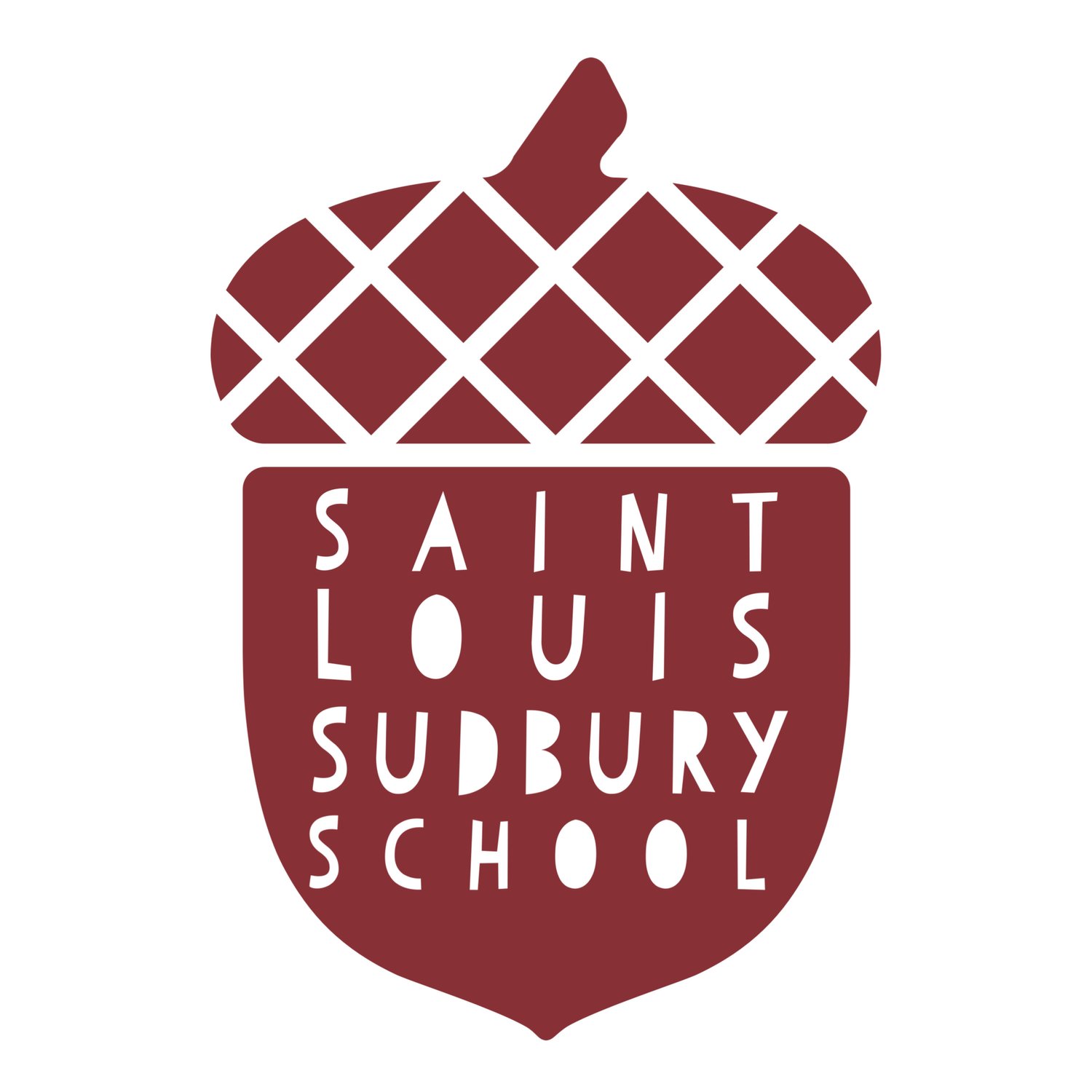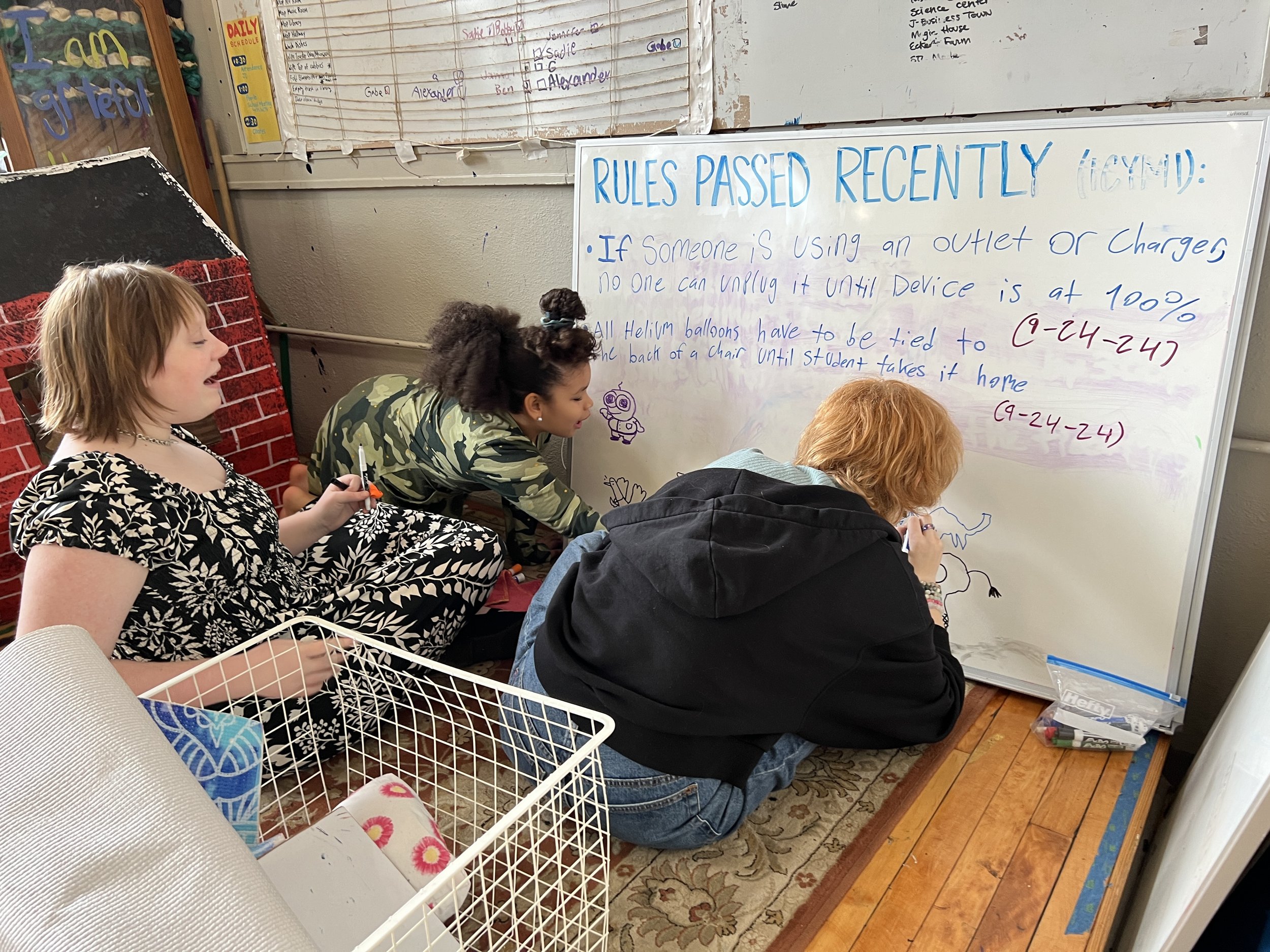"Sudbury trusts students to trust themselves." -- Saint Louis Sudbury School student
Saint Louis Sudbury School students are life-learners, exploring the world on their own terms: no coercive curriculum, grades, tests, or homework. We value autonomy, dignity, and respect.
Our Mission
We believe that children are born with the drive and skills to create a meaningful and successful life and learn best when given the opportunity to initiate and develop learning on their own. Within a self-governing democracy, our school community protects, respects, and trusts the autonomy of young people.
Our VISIOn
Saint Louis Sudbury School envisions that all young people in the St. Louis region have access to a unique educational choice—one that integrates self-directed learning, innate curiosity, trust, and responsibility within a supportive and thriving democratic community.
HOW IT WORKS
Age-Mixing
While most schools segregate students based on age, Sudbury students freely mingle. Instead of being assigned to a class or group, Sudbury students have free access to solitude, small groups, large groups, younger students, older students, and adults within the school and broader community. We see Saint Louis Sudbury School teenagers engaging in nurturing and playful behavior with our younger students. The older students get to be meaningful role models in a way that isn’t possible in conventional, age-divided schools. We see students interacting with the knowledge, skills, and development levels that are close enough to their own while also challenging themselves to play and learn from people of different ages. It’s not unusual for a 9-year-old to teach something to a 17-year-old and vice versa!
Democracy
”The point of school meeting is to inform people what’s happening for the day, have discussions to talk about school issues, and make motions to get things done.” — Saint Louis Sudbury School Student
Sudbury schools truly belong to the students and staff. Three times a week, students and staff are invited to attend the School Meeting, where all big and small decisions are made collaboratively. This includes proposing and planning field trips, figuring out ways to help problem solve with students in a larger group, adjusting and approving the school budget, creating and amending school rules, approving volunteers, making recommendations to the Board of Directors, proposing possible guest instructors and classes, and more. This is where students learn what it takes to listen, consider the needs of their school’s community, be informed, ask questions, advocate for causes, negotiate, and balance personal responsibility with that of others. Every person, regardless of age, gets one vote.
Restoration Committee
When anyone at school (student or adult) struggles with a school rule or policy, a School Meeting Member can write a support slip which goes to our Restoration Committee. This elected committee, comprised of students and advisors (staff members), helps students problem solve concerning situations and personal conflicts. The goal of these meetings is not a punitive or consequence based, but rather to support one another so that we can create a community that we all want to be a part of and one that can be a respectful, inviting, and fun place to be. Elements of Non-Violent Communication and empathy strategies are practiced by all in these productive meetings.
Self-Directed Education
Sudbury students are not obligated to follow any specific curriculum or bell schedule. Their time is their own. For many, this looks like a lot of unstructured play! It also looks like passionate investigation of diverse subjects, driven by genuine curiosity. It often means sharing passions with each other in casual conversation. There is no “typical day” in a Sudbury school.
Sudbury students learn what they want, when they want, with whom they want, for as long as they want, to the depth of their interests, in the way that best suits them. Activities are allowed as long as they are deemed respectful, responsible, and reasonable by School Meeting members.


